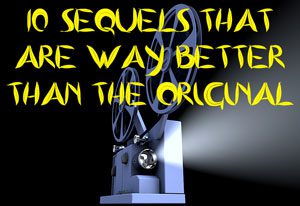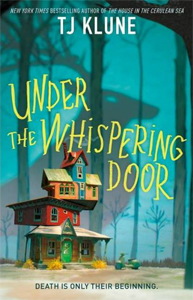“Under the Whispering Door” (2021) is clearly written from the heart, as TJ Klune uses the outlet of fantasy fiction to deal with his grief over the loss of a loved one (something he confirms in the afterword). Just as clearly, he’s still learning how to write. In his latest young-adult novel, predictability outstrips his imagination, and his insistence on writing the way people speak (with choked-off partial statements) undercuts the poetic emotions and philosophizing.
The strength is the characters, not so much because they are original but rather because Klune loves them and loves how they love each other. We start with Wallace Price, a lawyer who is all about the work. In the opening chapter, he fires an otherwise good paralegal for one mistake. To his small credit, he doesn’t enjoy it – he’s not mustache-twirling evil – but he can’t be bothered with other people’s feelings. They are a waste of time.
In Chapter 2, Wallace drops dead of a heart attack before prime heart-attack age and we see his perspective from outside his body. Klune, perhaps unavoidably, sidetracks into world-building, as he establishes the rules of a world where dead people make a pit stop at Charon’s Crossing Tea and Treats, in the woods outside a small town. I feel like the author is saying “Yes, this is basically ‘Dead Like Me,’ but not exactly; notice all these minor differences.”

“Under the Whispering Door” (2021)
Author: TJ Klune
Genre: Fantasy
Note to readers: As part of a book club I belong to, I’ll be reading more books outside of my usual comfort zone under the heading of “Book Club Book Report.”
Dead like ‘Dead Like Me’
“Whispering Door” makes me want to do a rewatch of “Dead Like Me” (2003-04), a bittersweet show about a depressed young woman who lives a second life as a helpful supernatural Reaper. I suppose that’s to Klune’s credit.
There’s also a touch of “Harry Potter,” but shorter on wonder and wordsmith-iness. The tea shop – the upper floors of which are home to Hugo (a human “ferryman”), Mei (a human Reaper), Nelson (Hugo’s ghost grandfather) and Apollo (Hugo’s ghost dog) – has four stories awkwardly yet safely stacked as per the colorful cover art.
The door in the ceiling of the fourth floor leads to heaven. Ghosts stay at the house till they are ready to move on. Some go immediately and with enthusiasm about being reunited with loved ones. Some, like Wallace, need more time. Others, like Cameron, are so traumatized that they run away into the town; this makes them flake away till they are a “Husk.”
As bisexual Wallace goes through the “shock, denial, anger and acceptance” stages of grief over his own death, he befriends all four of the residents, notably Hugo, who is gay. Klune’s love for these people (and dog) soak through the page by sheer will.

They do get some development, such as Wallace becoming less selfish, Mei becoming more confident in her Reaper job, and Hugo dealing with his panic attacks. (This trait of Hugo’s is a nice bit of neurodiversity, but unfortunately it’s the one part of the book that’s underwritten.) Meanwhile, Nelson is Yoda without the backward speech. But I can’t say any of these people surprised me.
Interlocking journeys
“Whispering Door” lacks a complex plot; it’s Wallace’s journey from life to death, with comparative journeys going on around him. The dearth of plotting doesn’t bother me too much, except that because Klune creates all these fantasy rules, it feels like there should be a plot that robustly uses the rules.
A de facto villain is The Manager (essentially God, but in the form of a young boy). The conflict between our heroes and the Manager – over whether dead people should be shown empathy or quickly shuffled along the assembly line – is driven by dialog, a lot of it emotional rather than philosophical.
That said, “Whispering Door” does have philosophical underpinnings that will connect with many readers (as will the emotions, even if I find them overemphasized). Klune posits that death – although sad – is a transition, not the end. He does this through hopeful insistence, as if trying to convince himself that he will see his own loved one again in heaven after his mortal life concludes.
I think this theme plays better when it’s more subtle and metaphorical, and done with fewer words. (This book is 376 pages, and a better version would be about 200.) Although Klune thinks he’s being metaphorical, he’s only barely achieving it. An attic door might be unique to “Whispering Door” as a mechanism, but it’s obviously the gateway to heaven.
Proceeding with caution
I can’t shake the feeling that “Whispering Door” is a stereotype of a safe-space, trigger-warning millennial novel. Klune (born in 1982) notes in the afterword that he had “sensitivity readers” closely check his portrayal of Nelson and Hugo, who are black, and Mei, who is Asian. Klune defines himself as queer, and perhaps he relates to Wallace and/or Hugo in that regard.
There’s a cautiousness to Klune’s writing. No character is particularly extreme. The most colorful character is sexy charlatan “medium” Desdemona, who makes YouTube videos in the tea shop, to the eye-rolls of Hugo and Mei. But even she is a cliché.
If I imagine “Under the Whispering Door” adapted into a movie, it’s at Nickelodeon level, with broad comedy and generic feeling. Yet this book is not phoned in. The issues of life, death and the search for inner peace clearly mean everything to Klune. Unfortunately, it only partially translates to the reader.

